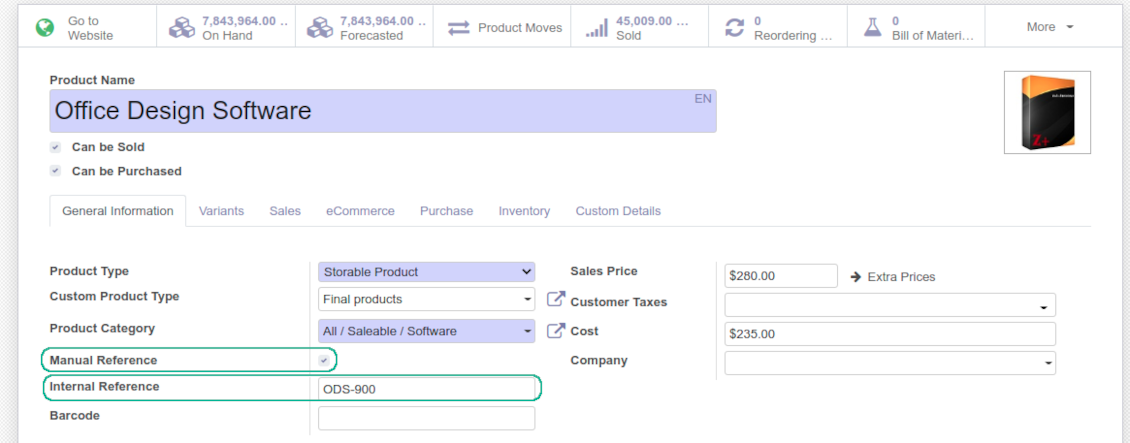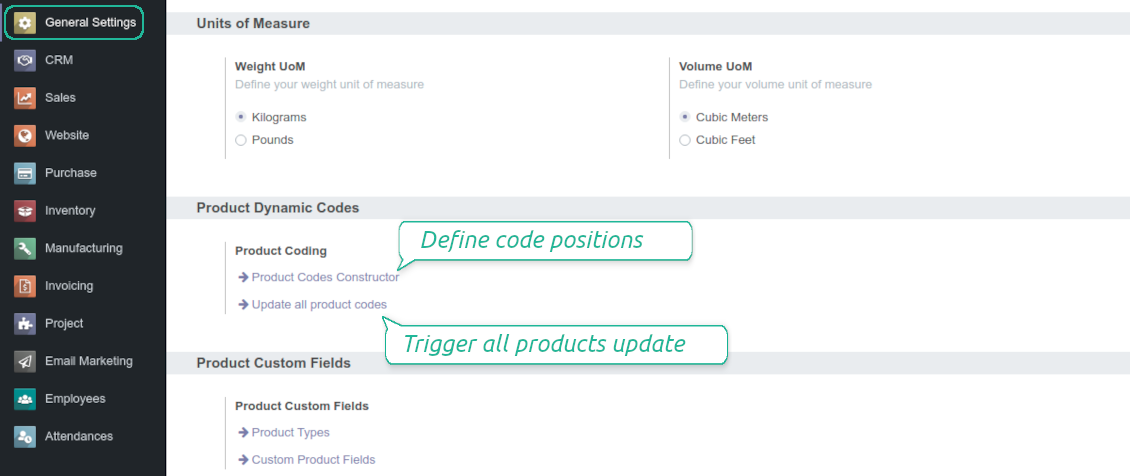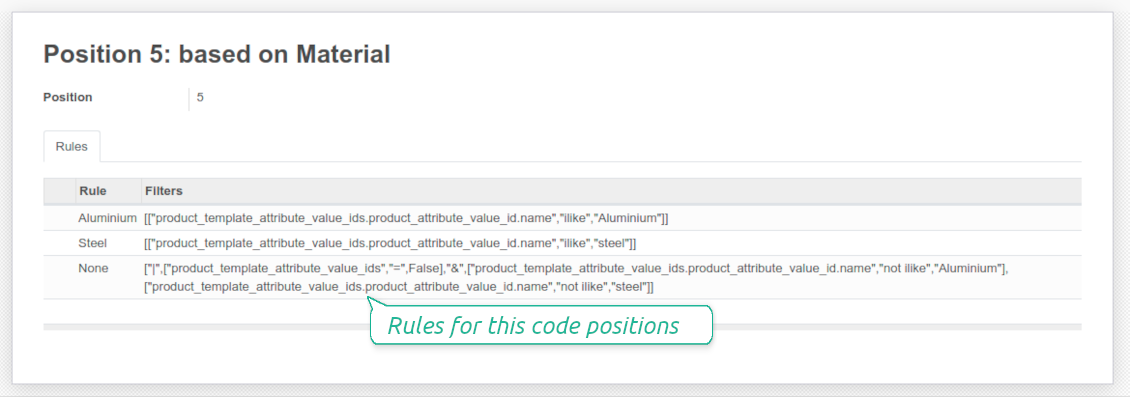Product Dynamic Codes v.14
The tool to flexibly and automatically update product internal references
This is an Odoo tool to implement product automatic coding. The app is flexible enough to reflect almost any product reference structure, since it let you define as many code parts and as complex criteria as you need.
Advanced rules for product references
Define code positions which would satisfy business specifics. Have as many parts as it's needed. Distinguish complex criteria to apply parts for products of specific kinds and not for others
Automatic code generation
The app regularly checks updates of code rules and of products. Product references are automatically changed accordingly without user interactions
Manual product numbering
Mark certain products as 'Manual reference': their codes would not be influenced by the rules and would become editable. Products with pre-defined codes (e.g. created by import) by default have manual references
Based on standard Odoo tools
Product coding is global: rules are equally applied for each company, but you can restrict products in rules by using filters by company.
Codes are calculated in a current user language. Avoid using translated fields for code rules.
The right to define product coding rules belongs only to Odoo administrators.
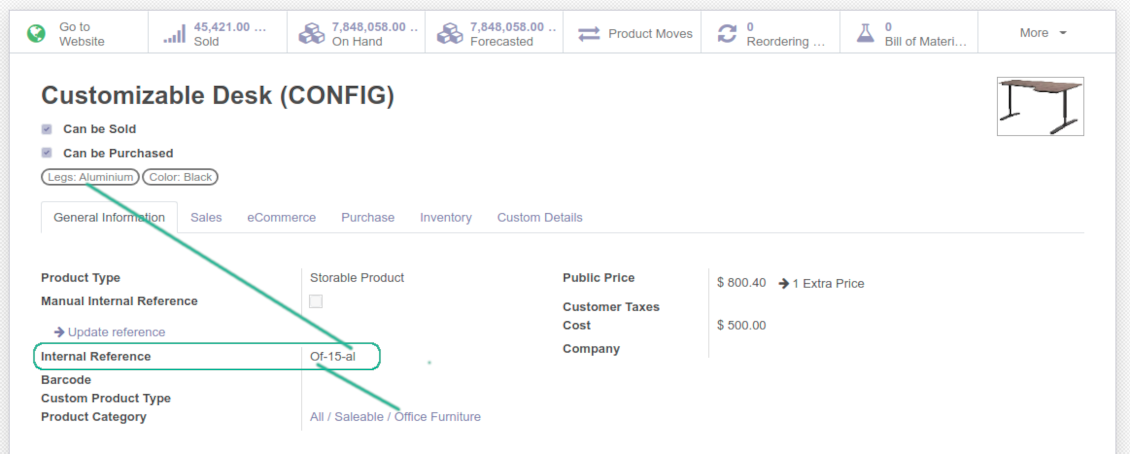
Automatic product references based on rules
Dynamic and static code positions
-
Product references are generated based on code parts. Define as many parts as you need. For example, the first position relates to a category, the second - to a manufacturer, the third - to the attribute 'material', etc.
-
Code positions for certain products might be empty: e.g. for services there is no sense to have a code part of the attribute 'material'
-
Each position has rules to generate a code value which might be static (e.g. '-AL') or dynamic (e.g. first 2 letters of category name). In order a code part is calculated for a product, there should be at least a single rule this product satisfies
-
As dynamic code use any standard or custom field of a product variant or template: char, integer, float, date and date with time, selection, and many2one. In case of many2one field (e.g. a related product category) you should select its linked field (for example, a category name)
-
For dynamic code use not only the whole field value, but also its part. For instance, apply first 2 letters (0-1) of a category name or only month of a manufacture date (5-7). Leave '0' in both start and end to retrieve the whole field value
When product references are updated
-
When a product is created or changed
-
Regularly by the cron job for all products (have a look a the tab 'Configuration', the section 'Scheduled jobs')
-
Manually when you push the button on a product form
-
Manually for all products when you push the button on the configuration page
-
Such complex logic is introduced to avoid slowdowns. The point is that codes rules are advanced and there is no way to define recalculation triggers. Generating codes on fly would result in low performance. That is why to make sure codes are generated, Odoo regularly looks over all products.

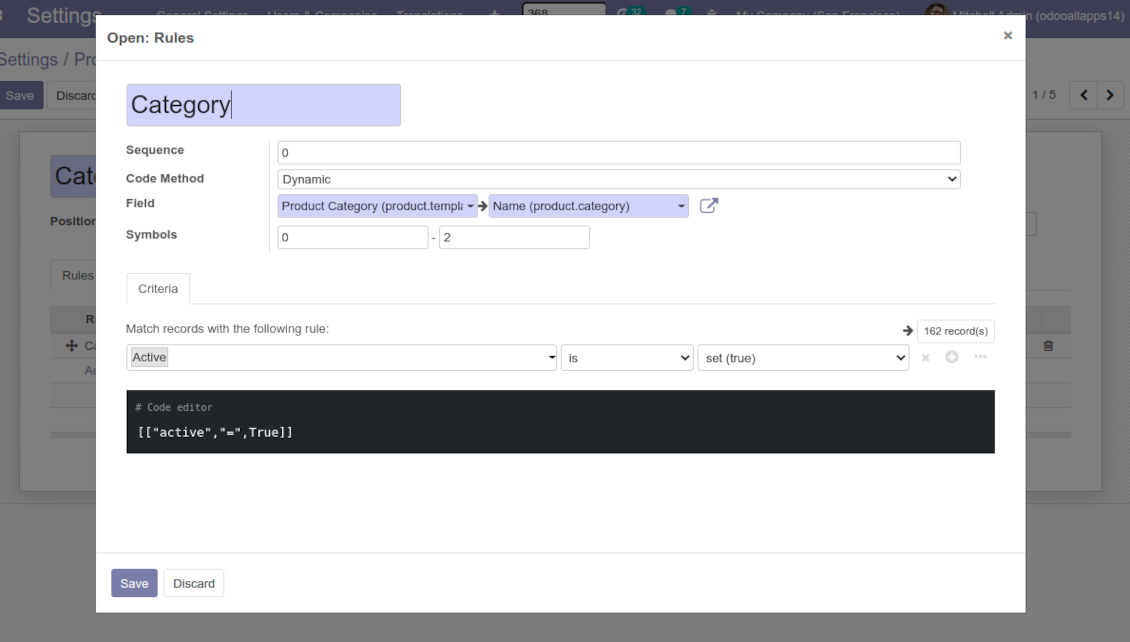
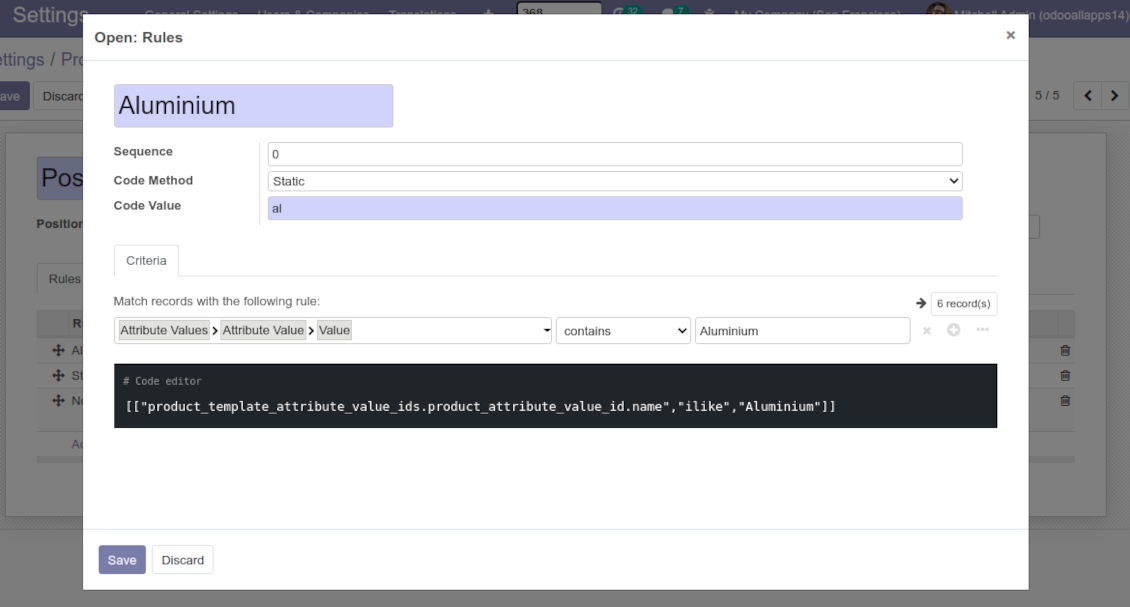
Configuration and Installation Tips for Product Dynamic Codes Odoo v.14
Scheduled jobs
You may change the frequency of automatic references' updates. To this end:
- Turn on debug mode
- Go to technical settings > Automation > Scheduled jobs
- Find the job 'Construct Dynamic Codes'.
Bug reporting
In case you have faced any bugs or inconsistent behavior, do not hesitate to contact us. We guarantee to provide fixes within 60 days after the purchase, while even after this period we are strongly interested to improve our tools.
No phone number or credit card is required to contact us: only a short email sign up which does not take more than 30 seconds.
Please include in your request as many details as possible: screenshots, Odoo server logs, a full description of how to reproduce your problem, and so on. Usually, it takes a few business days to prepare a working plan for an issue (if a bug is confirmed) or provide you with guidelines on what should be done (otherwise).
Public features requests and module ideas (free development)
We are strongly motivated to improve our tools and would be grateful for any sort of feedback. In case your requirements are of public use and might be efficiently implemented, the team would include those in our to-do list.
Such a to-do list is processed on a regular basis and does not assume extra fees. Although we cannot promise deadlines and final design, it might be a good way to get desired features without investments and risks.
No phone number or credit card is required to contact us: only a short email sign up which does not take more than 30 seconds.
The technical core to synchronize your cloud storage solution with Odoo
379€The tool to build deep and structured knowledge base for internal and external use. Knowledge System. KMS
The tool for time-based service management from booking appointment to sale and reviews
398€The tool to automatically synchronize Odoo attachments with OneDrive files in both ways
468€The tool to automatically synchronize Odoo attachments with Google Drive files in both ways
468€The tool to configure variant prices based on attributes coefficients and surpluses
98€The tool to make inventory data essential and comfortable for elaboration
The tool to calculate stock demand trends and make prediction for future demand statistically. Stock Forecast
98€